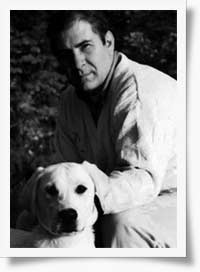 Distilled to its essence, the common denominator of all the moral precepts laid down by the founders of all the great religions is selflessness. Collectively and continually, they remind us we cannot see God until we take our eyes away from the mirror – turning away from ourselves, from our self-centered ambitions and pursuit of power and possessions.
Distilled to its essence, the common denominator of all the moral precepts laid down by the founders of all the great religions is selflessness. Collectively and continually, they remind us we cannot see God until we take our eyes away from the mirror – turning away from ourselves, from our self-centered ambitions and pursuit of power and possessions.
The prison population provides the most dramatic example of the damage we do in pursing our parochial personal interests. Most of those who are incarcerated have taken selfishness and self-centered behavior to its logical conclusion. At their core, these people are the “takers” of the world – the takers of life, liberty, security and property.
After thirty years of working with prison populations, Mimi Silbert, founder of Delancy Street, confirms this observation and takes it a step further. She notes most of the people in prison have always been on the receiving end.
“They are either receivers of punishment and hate and aggression, or they are the receivers of welfare, the receivers of therapy,” she says, “but they are never the doers. They are never the givers.”
Conversely, the simplest ethical approach to life is to give as much as possible and take as little as necessary. In the words of Israel Zangwill, “Selfishness is the only real atheism; unselfishness, the only real religion.”
The more we receive without giving, the less we think of ourselves and the more dependent we become. The givers of the world have reversed this spiral. The more they give, the more they want to give, the more they can give and the better they feel about themselves. They have learned the most profoundly selfish thing we can do is to be selfless.


I agree that we strive for many temporary pleasures. We surely do get the most from giving. My only dissent is with your quote from Zangwill. And while I enjoy his fondue restaurant from time to time, he came from a time you could put your trust in the American government more than you can confidently do now. So if you replace the social institution of his time, religion, and he sought independence and atheism, now what would the Zangwill of our time seem, anarchy?
The long view tells me governments are always flawed and always to be distrusted. If there is any hope it is in the wisdom of our founders in creating a government that rests on the will of the people. While you are probably right not to put you trust in the government at the moment, I still believe in the process and think the people will prevail. I think it is only a matter of time before the people rise up and say “enough”. At least that has been the pattern of the past.
It is a beautiful statement of truth you have written here,but I am not in agreement that the future is brighter. T he more people that become dependent on government each day–that expands the list of people who believe in entitlements.Look at our Congress–all the members have their own special health care plan.We are headed toward a Socialistic society like Europe and no one in power is willing to stop it. hhj
Couple of reactions. I believe it’s well founded that a very high percentage of the prison population possess learning, emotional or mental disabilities (from poor parenting, poverty, and/or their physiology). Not to excuse the behavior of most of the incarcerated, just to point out that I don’t believe that we can lay them out as “takers” of the good stuff of our society.
We don’t all start our lives from a level playing field. Some are dealt a very, very difficult hand that effects their choices and decision-making, especially as young people. I don’t believe that our poorest citizens find much dignity in being dependent….the overwhelming majority would rather have a decent job that pays a livable wage. It seems very clear to me that every organized society has a choice in terms of how it can seek to “level the playing field” for the poor who find themselves unable to get a job that pays a livable wage or others who live a paycheck away from food stamps and an unemployment check.
We live in the richest country in the world. Are we as a society making smart, caring and unselfish choices in providing the poor with both an economic safety net and, more importantly, opportunities to grow their own way out of the poverty cycle.
It’s also clearly in a country’s economic self-interest to lessen the gap between the rich and the poor, while taking serious steps to avoid growing this gap.
All true, but it’s interesting to see what happens if you follow the Delancey Street model. They work with the same population with the same challenges with remarkable success. The key Mimi Silbert says is to take people who have always been on the receiving end (in every sense of the word) and turning them into to ‘givers’ simply by helping them become productive members of society. Last time I looked, they had the lowest recidivisms rate in the country.